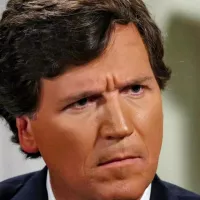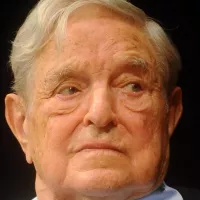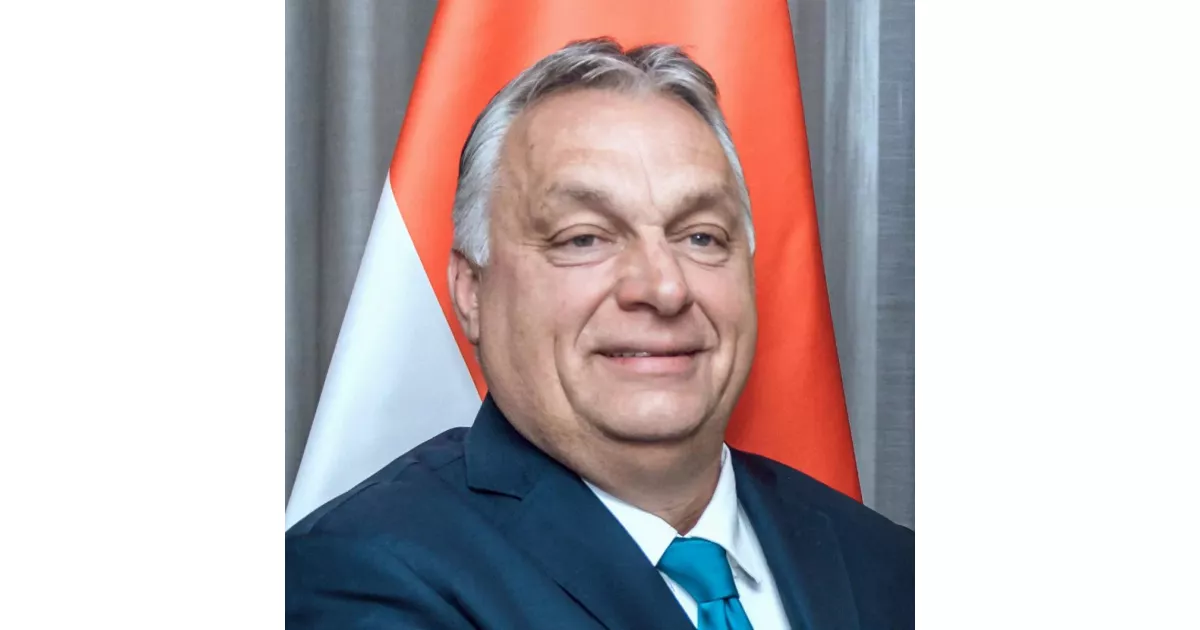Resilience and perseverance in the journey of Viktor Orbán. A timeline of obstacles and growth.
Viktor Orbán is a prominent Hungarian politician and lawyer, currently serving as the Prime Minister of Hungary since 2010, a position he also held from 1998 to 2002. He has been the leader of the Fidesz party since 2003, and before that from 1993 to 2000. Orbán secured re-election as prime minister in 2014, 2018, and 2022, solidifying his long-standing influence in Hungarian politics. In November 2020, he became Hungary's longest-serving prime minister.
1920: The Trianon Treaty
The 1920 Trianon Treaty was a significant event that the 1999 "status law" aimed to address, due to its negative effects on ethnic Hungarian minorities in neighboring countries.
1956: Planned Demonstrations on Anniversary of 1956 Revolution
On 1 November, Orbán and his party announced plans to stage demonstrations across Hungary on the anniversary of the Soviet suppression of the 1956 Revolution. These events served as a memorial and protest, but the demonstrations were small and concluded by year's end.
1998: Bribery Scandal and dispute with Budapest City Council
In 1998, two of Viktor Orbán's state secretaries in the prime minister's office had to resign due to their implication in a bribery scandal involving Lockheed Martin Corporation. The government was also involved in a dispute with Budapest City Council regarding the cancellation of two major urban projects.
March 1999: Hungary Joins NATO
In March 1999, Hungary joined NATO along with the Czech Republic and Poland, after Russian objections were overruled. Hungary's membership in NATO demanded its involvement in the Kosovo crisis and modernization of its army. However, NATO membership also dealt a blow to the economy due to a trade embargo imposed on Yugoslavia.
1999: Passing of the "status law"
In 1999, Hungary garnered international media attention for passing the "status law" concerning ethnic Hungarian minorities in neighboring countries. The law aimed to provide education, health benefits, and employment rights, addressing the negative effects of the 1920 Trianon Treaty.
2000: Accusations of Anti-Europeanism
In 2000, opposition parties and the left-wing press criticized Orbán for his comment that "there's life outside the EU", interpreting it as anti-European sentiment and sympathy for the radical right.
2001: Political Scandals and Coalition Breakup
Numerous political scandals during 2001 led to a breakup of the coalition that held power in Budapest. A bribery scandal in February triggered allegations and prosecutions against the Independent Smallholders' Party. József Torgyán was ousted from the FKGP presidency and the top post in the Ministry of Agriculture.
2002: Stagnated Public Support Before General Elections
In 2002, as general elections approached, public support for political parties generally stagnated. Opinion polls indicated that Fidesz and the main opposition Hungarian Socialist Party (MSZP) were running neck to neck, each attracting about 26% of the electorate.
October 2006: Referendum Procedure Started
On 23 October 2006, Orbán initiated the referendum procedure by announcing they would hand in seven questions to the National Electorate Office regarding government reforms.
2006: Parliamentary Election Failure
In the 2006 parliamentary election, Orbán, as the Fidesz candidate, failed to gain a majority, initially putting his political future as the leader of Fidesz in question.
2011: Controversial Constitutional Changes
In 2011, under Orbán's leadership, constitutional changes were enacted that were accused of centralizing power, curbing civil liberties, restricting freedom of speech, and weakening the Constitutional Court and judiciary.
November 2014: Proposed Internet Tax and Protests
In November 2014, Orbán proposed a controversial "internet tax" amid accusations of corruption, leading to numerous protests against his government, including one in Budapest.
December 2014: Questioning Nord Stream II
In December 2014, Viktor Orbán questioned Nord Stream II, a new Russia–Germany natural gas pipeline, asking for a "reasonable argument why South Stream was bad and Nord Stream is not".
2015: Soros Criticizes Orbán's Migrant Crisis Handling
In 2015, George Soros criticized Orbán's approach to the European migrant crisis, contrasting it with his own plan by saying that Orbán treats national borders as the objective and the refugees as an obstacle while Soros' plan treats the protection of refugees as the objective and national borders as the obstacle.
2015: Criticism of Merkel and Migrant Crisis Handling
In 2015, Orbán criticized Angela Merkel's decision to open Germany's borders to migrants. Conversely, he faced accusations of manipulating the 2015 European migrant crisis for political gain, including mistreating migrants in Hungary and encouraging far-right sentiments in Western Europe.
July 2017: Anti-Soros Billboard Campaign and Controversy
In July 2017, the Israeli ambassador in Hungary, along with Jewish groups, denounced a government-backed billboard campaign against George Soros, likening it to Nazi propaganda. Subsequently, Israel's Ministry of Foreign Affairs issued a clarification denouncing Soros. This occurred before Benjamin Netanyahu's visit to Hungary.
2017: Deterioration of Relations with Ukraine
Since 2017, Hungary's relations with Ukraine rapidly deteriorated over the issue of the Hungarian minority in Ukraine. Orbán repeatedly criticized Ukraine's 2017 education law, which makes Ukrainian the only language of education in state schools.
March 2020: Parliament Passes Legislation Creating State of Emergency
On 30 March 2020, the Hungarian parliament voted in favor of passing legislation that would create a state of emergency without a time limit and grant the prime minister the ability to rule by decree.
May 2020: European Court of Justice Ruling Against Migrant Transit Zones
In May 2020, the European Court of Justice ruled against Hungary's policy of migrant transit zones, which Orbán subsequently abolished while also tightening the country's asylum rules.
March 2022: Response to Russian Invasion of Ukraine
In March 2022, following Russia's invasion of Ukraine, Viktor Orbán decided to welcome Ukrainian refugees to Hungary and support Ukraine's EU membership. Initially, he condemned Russia's invasion and supported EU sanctions against Russia, but rejected sanctions on Russian energy due to Hungary's dependency on Russian fossil fuels.
July 2022: Controversial Speech at Bálványos Summer University
In July 2022, Orbán delivered a speech at the Bálványos Free Summer University, expressing views on migration and race that were widely criticized. Zsuzsa Hegedűs, his senior advisor, resigned in protest, describing the speech as resembling "a pure Nazi text". Orbán later clarified his remarks in Vienna, focusing on cultures rather than race.
2022: Accusations of Antisemitism
In 2022, Orbán faced condemnation from the International Auschwitz Committee for comments perceived as discriminatory towards non-Europeans. Critics accused him of antisemitism, while supporters pointed to his establishment of Holocaust memorials as evidence to the contrary.
July 2024: Protests Against Shutdown of Petroleum Pipeline
In July 2024, after Zelensky shut down the overland pipeline transfer of petroleum products from Russia to Hungary, Orbán and his government protested this event strenuously, later rejecting Croatia's suggestion to use the Adria pipeline due to perceived unreliability.
October 2024: Addressed the European Parliament
In October 2024, Viktor Orbán, as Premier of Hungary, addressed the European Parliament. He faced criticism from Ursula von der Leyen and MEP Péter Magyar, among others, regarding support for Ukraine, Hungary's economy, government corruption and declining living standards.
Mentioned in this timeline

Donald John Trump is an American politician media personality and...

Vladimir Vladimirovich Putin is a Russian politician and former intelligence...

Tucker Carlson is an American conservative political commentator known for...

George Soros is a Hungarian-American investor and philanthropist with a...
Ukraine is a country in Eastern Europe the second-largest on...

Martial law is the imposition of military rule in place...
Trending

29 minutes ago Deandre Ayton Detained in Bahamas Airport for Marijuana Possession, Later Released.
29 minutes ago iPhone 18: eSIM Expansion Expected in 2026; Key Feature Loss for Europe?

1 hour ago Kristi Yamaguchi and the Blade Angels aim to end US figure skating drought.

2 hours ago Shatner reflects on Judy Garland's fragility and his disappointment meeting her.

2 hours ago Jasmine Crockett and James Talarico compete in Texas Democratic Senate primary.

2 hours ago Jay Manuel clarifies Tyra Banks friendship status, reflects on 'America's Next Top Model' fall out.
Popular

Jesse Jackson is an American civil rights activist politician and...
Randall Adam Fine is an American politician a Republican who...

Pam Bondi is an American attorney lobbyist and politician currently...

Barack Obama the th U S President - was the...

Kid Rock born Robert James Ritchie is an American musician...

XXXTentacion born Jahseh Dwayne Ricardo Onfroy was a controversial yet...
